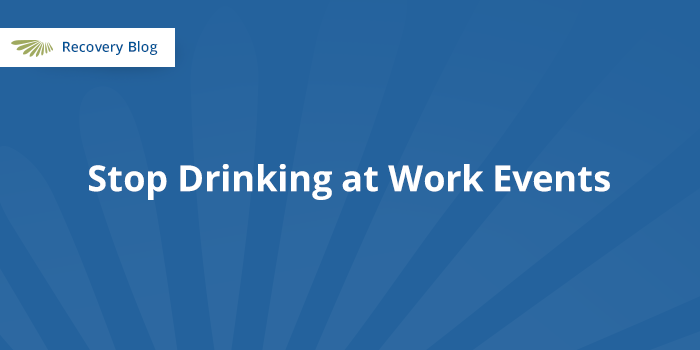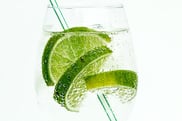If You're Defensive About Your Drinking, You Might Have a Problem
Has anyone ever accused you of having a drinking problem? Perhaps it was a well-intentioned friend...

Turning down a drink isn’t always easy. Expectations of drinking are hard to break and friends and colleagues don’t often help. Long work functions can be particularly trying and if you’re used to making it through the night with the help of a few drinks, the key to making it through them sober will be in finding some good alternative coping strategies.
If you have a history of drinking, and maybe drinking too much, you may be surprised with the positive response when you tell people you are getting alcohol addiction treatment. Those people who you expected to push you into having a a few drinks with them may turn out to be the most supportive in your decisions.
 If you’re going to a networking event, there are going to be drinks. You will face two different drinking pressures: indirect pressure and direct pressure.
If you’re going to a networking event, there are going to be drinks. You will face two different drinking pressures: indirect pressure and direct pressure.
Direct social pressure is when you are offered the opportunity to drink. At business events these will come in the form of waiters, bartenders, and well meaning colleagues who are trying to extend social niceties.
Indirect social pressure is when you are tempted to drink just be being around others – even when no one offers you a drink. Simply being at a networking or business function that people are drinking at may make you want to drink.
You hold your ground each day at work over important issues, now hold your ground on your own important issue.
Know Your “No”
Practice saying “no thanks” to drinks firmly and with confidence but also in a friendly and respectful manner. You have to mean it if you want it to work. Avoid long explanations and vague excuses as you might just talk yourself into saying “yes”.
Imagine the different direct ways you will be offered alcohol and say “no” to each of those before you even leave the house. You may be surprised at just how hard it is for you to say “no” and also surprised at how easy it is for people to just accept “no” and move on.
How to Say “No”
The level of insistency of the person offering the drink may vary, but a simple “no”, “no thanks” or “no thank you, I don’t want one” should be sufficient. If someone is being more insistent you can say something along the lines of “You know, I'm (cutting back/not drinking) now (to get healthier/to take care of myself/because my doctor said to). I'd really appreciate it if you'd help me out.” (The NIAAA has a great resource on how to Script Your “No”)
Some variations on how to refuse a drink:
If you have a close colleague who is aware of your commitment to sobriety, have them attend the event with you and ask them to step in with a distraction if your “no” is starting to waver.
 If you already have a (non-alcoholic) drink in your hand you’ll be less likely to order another drink. You’ll also be less likely to be offered another drink. If you want to be discrete with your co-workers about quitting drinking, get a drink with garnish that looks like it might actually be alcoholic.
If you already have a (non-alcoholic) drink in your hand you’ll be less likely to order another drink. You’ll also be less likely to be offered another drink. If you want to be discrete with your co-workers about quitting drinking, get a drink with garnish that looks like it might actually be alcoholic.
Drinking and driving shouldn’t mix, mention that you are driving and should not be drinking this evening.
If someone is insistently asking you to drink and is not respecting your desire to abstain, you can politely excuse yourself from the company, take an impromptu bathroom break or “phone call”, or take it as a queue to leave the event entirely. For a while, plan to leave all events slightly early with the premise of having to do more work/spend time with family so that a quick departure and a refrain from drinking is normalized.
Remember, it’s your choice. This isn’t a decree handed down from another authority, your decision to not drink is YOUR decision to not drink. Own it. Other people will respect your decision if you make it YOUR decision.
Has anyone ever accused you of having a drinking problem? Perhaps it was a well-intentioned friend...
Sometimes it can be really hard to change our behaviors. It can be even harder when there is a...
After a long day, there is nothing more relaxing than having a few drinks to help you unwind,...